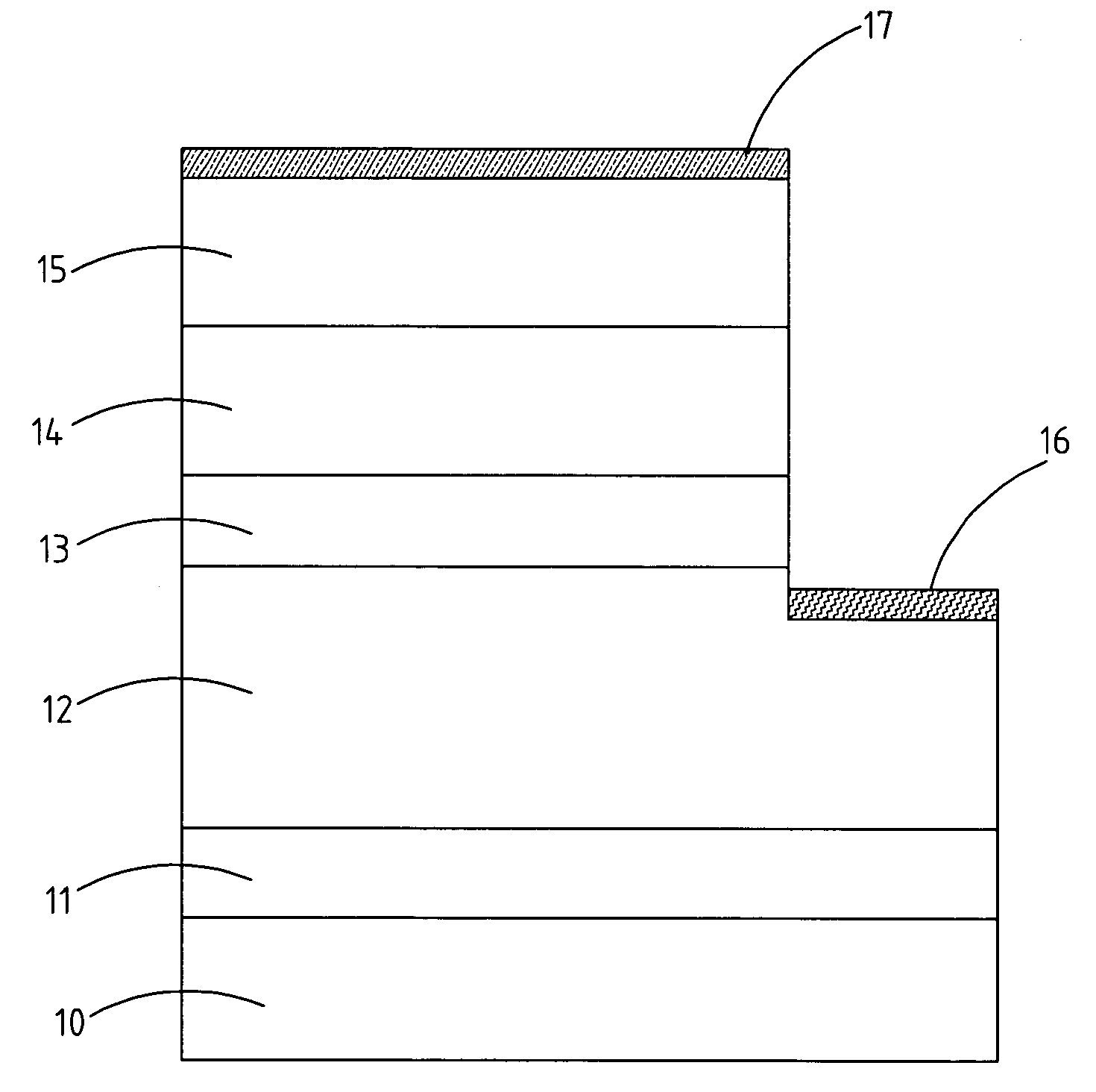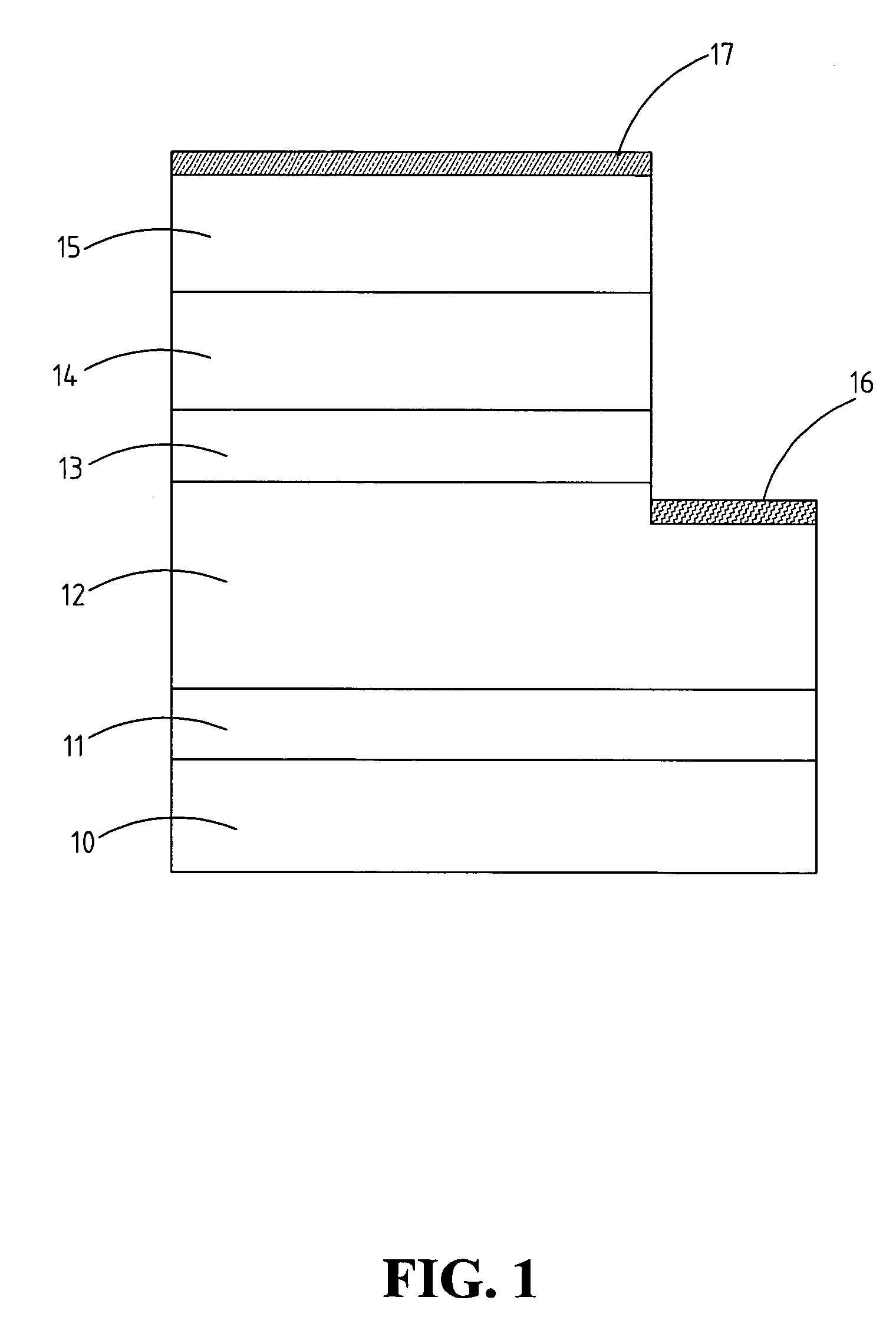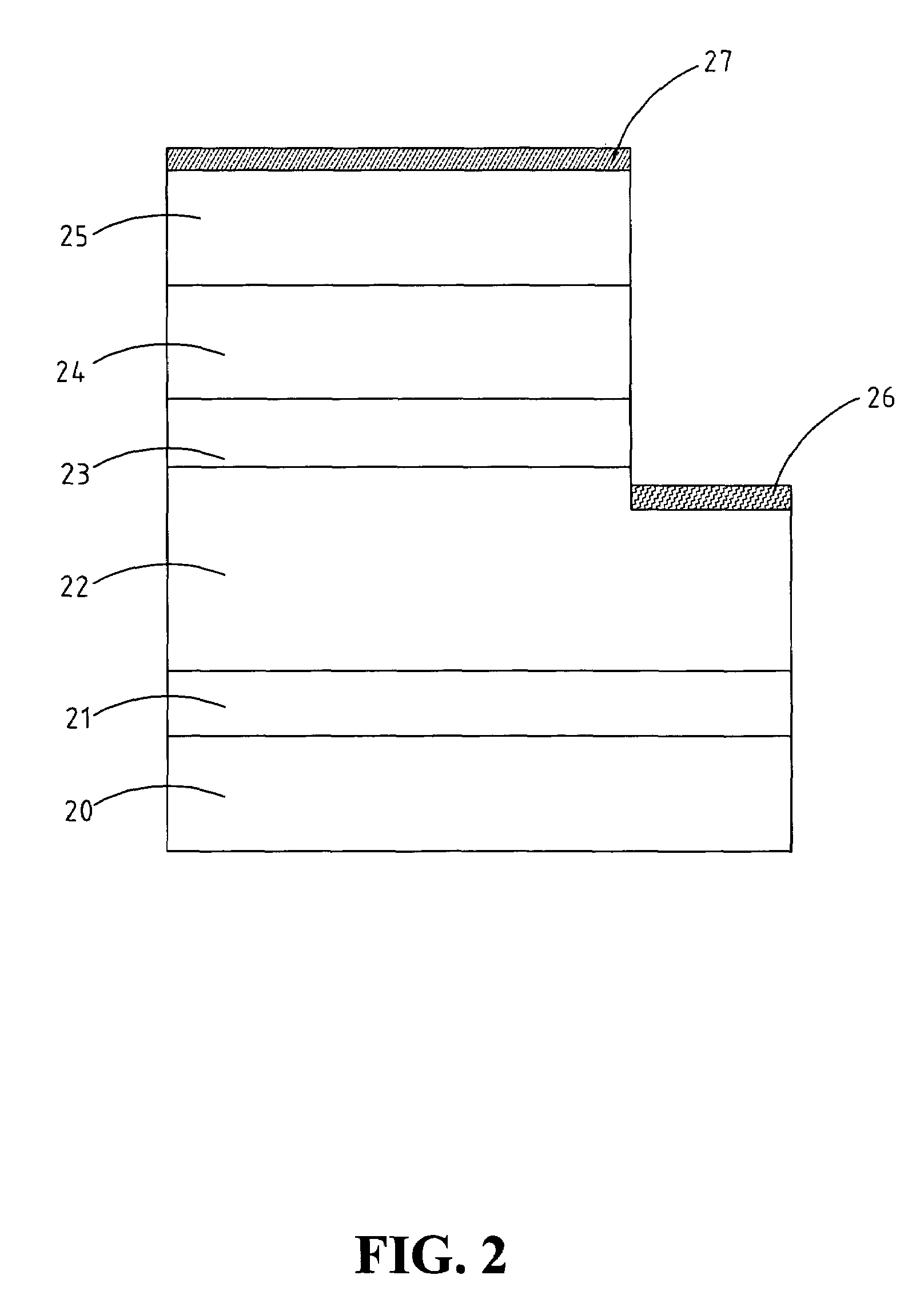GaN LED structure with p-type contacting layer grown at low-temperature and having low resistivity
a technology of led structure and contacting layer, which is applied in the direction of basic electric elements, electrical equipment, and semiconductor devices, can solve the problems of increased energy consumption and inability of the epitaxy to keep the regular structure formed, and achieves the effects of reducing energy gap, reducing resistivity, and improving reliability
- Summary
- Abstract
- Description
- Claims
- Application Information
AI Technical Summary
Benefits of technology
Problems solved by technology
Method used
Image
Examples
first embodiment
[0012]FIG. 1 shows the present invention of a GaN LED structure having a p-type contacting layer grown at low temperature and having low resistivity. The embodiment includes a substrate 10, a buffer layer 11, an n-type GaN layer 12, an active layer 13, a p-type shielding layer 14, and a p-type contacting layer 15. Substrate 10 can be made of sapphire (including C-Plane, R-Plane and A-Plane), SiC (6H-SiC or 4H—SiC), Si, ZnO, GaAs, and MgAl2O4. It can also be made of a single crystal oxide having a lattice constant close to that of an N-compound semiconductor. But, in general, it is made of sapphire and SiC. Buffer layer 11 is located on top of substrate 10, and is made of Al1−x−yGaxInyN, where 0≦x<1, 0≦y<1and x+y≦1.
[0013]Located on top of buffer layer 11 is n-type GaN layer 12. Active layer 13, which is located on top of n-type GaN layer 12, is made of Al1−x−yGaxInyN. Located on top of the active layer 13 is a p-type shielding layer 14, which is made of Mg-doped p-type Al1−xInxN, whe...
second embodiment
[0015]FIG. 2 shows the present invention of a GaN LED structure having a p-type contacting layer grown at low temperature and having low resistivity. The embodiment includes a substrate 20, a buffer layer 21, an n-type GaN layer 22, an active layer 23, a p-type shielding layer 24, and a p-type contacting layer 25. Substrate 20 can be made of sapphire (including C-Plane, R-Plane and A-Plane), SiC (6H—SiC or 4H—SiC), Si, ZnO, GaAs, and MgAl2O4. It can also be made of a single crystal oxide having a lattice constant close to that of an N-compound semiconductor. But, in general, it is made of sapphire and SiC. Buffer layer 21 is located on top of substrate 20, and is made of Al1−x−yGaxInyN, where 0≦X<1, 0≦Y<1 , and X+Y≦1.
[0016]Located on top of buffer layer 21 is n-type GaN layer 22. Active layer 23, which is located on top of n-type GaN layer 22, is made of Al1−x−yGaxInyN. Located on top of active layer 23 is p-type shielding layer 24, which is made of Mg—Ga-codoped p-type Al1−xInxN, w...
third embodiment
[0018]FIG. 3 shows the present invention of a GaN LED structure having a p-type contacting layer grown at low temperature and having low resistivity. The embodiment includes a substrate 30, a buffer layer 31, an n-type GaN layer 32, an active layer 33, a double shielding layer 34, and a p-type contacting layer 35. Substrate 30 can be made of sapphire (including C-Plane, R-Plane and A-Plane), SiC (6H—SiC or 4H—SiC), Si, ZnO, GaAs, and MgAl2O4. It can also be made of a single crystal oxide having a lattice constant close to that of an N-compound semiconductor. But, in general, it is made of sapphire and SiC. Buffer layer 31 is located on top of substrate 30, and is made of Al1−x−yGaxInyN, where 0≦X<1, 0≦Y<1, and X+Y=1.
[0019]Located on top of buffer layer 31 is n-type GaN layer 32. Active layer 33, which is located on top of n-type GaN layer 32, is made of Al1−x−yGaxInyN. Located on top of active layer 33 is double shielding layer 34, which further includes a first shielding layer 340,...
PUM
 Login to View More
Login to View More Abstract
Description
Claims
Application Information
 Login to View More
Login to View More - R&D
- Intellectual Property
- Life Sciences
- Materials
- Tech Scout
- Unparalleled Data Quality
- Higher Quality Content
- 60% Fewer Hallucinations
Browse by: Latest US Patents, China's latest patents, Technical Efficacy Thesaurus, Application Domain, Technology Topic, Popular Technical Reports.
© 2025 PatSnap. All rights reserved.Legal|Privacy policy|Modern Slavery Act Transparency Statement|Sitemap|About US| Contact US: help@patsnap.com



